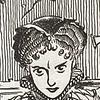Take a photo of a barcode or cover
This sits on the level of Flaubert’s “Madame Bovary” and “A Sentimental Education”. The story feels similar, but unfolds in a different way.
Proust unravels slower and barely at all. This is a novel for those of us not looking too much for plot as much as purpose.
Proust unravels slower and barely at all. This is a novel for those of us not looking too much for plot as much as purpose.
This is the translation we want: http://www.nytimes.com/2004/01/25/books/the-shape-of-time.html?pagewanted=all&src=pm
Books that have an enormous impact on both Literature itself and the very language we use, on the very way we experience the world (and ourselves), are hard to write about [1]. These books have already been pored over line by line, letter by letter, space by space, punctuation mark by punctuation mark; the lives of their conceivers also pored over in the same way, as if further meaning were to be found there: we must not only possess the great thing, we must know the how and the where and the wherefore. But as these books themselves try to teach us, why not just experience the damn thing, the mind-blowing sensuality of it all? Because what these books provide is a full immersive experience, the original virtual reality, the real virtual reality (if you'll allow me). Because it's not just the what, it's not just the characters or the story, it's the text itself that envelops you: the language, the style, the density of it (like an underwater world with hidden caves), the accumulation and crescendo of the text a symphony not only of sound but of sight, of all the senses; the immensity of the imagination, the (re- and de-)construction of reality and one's very identity through thoughts words memory but above all experience [2]. Despite its flaws (or because of them?), its ramblings on, its occasional opacity (wait, that's not a flaw [3]), the magic is strong, the effect powerful. In fact, I temporarily lost my will (desire?) to read another book after this one. I didn't know what to do; was this the be-all-end-all? That's it, it's all right there, what else is there to say? That's what happened to Beckett maybe. But he did go beyond Proust [4]. We can too.
[1] Examples here, here and here.
[2] It's also hilarious, something that's true of all great literature. How does one not laugh, for example, during those gatherings chez les Verdurins?
[3] See:
Kermode
Henry James
Gadda
[4] Especially the trilogy:
Molloy
Malone meurt
L'innomable
[1] Examples here, here and here.
[2] It's also hilarious, something that's true of all great literature. How does one not laugh, for example, during those gatherings chez les Verdurins?
[3] See:
Kermode
Henry James
Gadda
[4] Especially the trilogy:
Molloy
Malone meurt
L'innomable
People, I tried...but each time I went to read this, I felt like I was eating my vegetables. Or like I was reading this for English 10.
I prefer plot-driven novels and this is the antithesis of such. I appreciate Proust's intriguing sentence structure, and the prose is unimpeachable. I just didn't want to read an endless string of reminiscences from a stranger's childhood.
I prefer plot-driven novels and this is the antithesis of such. I appreciate Proust's intriguing sentence structure, and the prose is unimpeachable. I just didn't want to read an endless string of reminiscences from a stranger's childhood.
challenging
reflective
slow-paced
Plot or Character Driven:
Character
Strong character development:
Yes
Loveable characters:
Complicated
Well what can I say. A very challenging book with some huge, long sentences and bracketed sections which often required me to reread them multiple times.
There is a good story line and interesting characters.
Proust enjoys writing in depth descriptions of nature. I liked the interesting analogies he employed.
The end of the book left me wanting to know more of the story although I won’t be attempting the second book anytime soon (even if Declan does buy it for me) as I expect it to be equally, if not more, challenging.
There is a good story line and interesting characters.
Proust enjoys writing in depth descriptions of nature. I liked the interesting analogies he employed.
The end of the book left me wanting to know more of the story although I won’t be attempting the second book anytime soon (even if Declan does buy it for me) as I expect it to be equally, if not more, challenging.
just a bunch of french assholes eating lunch and judging each other. god i loved it.
"La realidad que yo conocí ya no existía. Bastaba con que la señora de Swann no llegara exactamente igual que antes, y en el mismo momento que entonces, para que la Avenida fuera otra cosa. Los sitios que hemos conocido no pertenecen tampoco a ese mundo del espacio donde los situamos para mayor facilidad. Y no eran más que una delgada capa, entre otras muchas, de las impresiones que formaban nuestra vida de entonces; el recordar una determinada imagen no es sino echar de menos un determinado instante, y las casas, los caminos, los paseos, desgraciadamente son tan fugitivos como los años".
No sabía qué esperar de Proust. Durante las primeras 200 páginas esperé a que empezase algo. Luego ya me dejé llevar por su prosa minuciosa, arrastrado por su corriente, como una letanía que analiza cada detalle y cada sentimiento desde cada ángulo. Lo hace con agudeza, conociendo el alma de cada personaje como si fueran personas reales.
Me ha ocurrido algo curioso durante la lectura: alguna frase activaba algún recuerdo propio de algo totalmente distinto que, una o dos páginas después, aparecía recreado en la novela.
Y hacia el final, cuando encajan todas las piezas de lo que parecían capítulos inconexos, solo quedan ganas para ir hacia la librería más cercana a buscar los demás tomos.
No sabía qué esperar de Proust. Durante las primeras 200 páginas esperé a que empezase algo. Luego ya me dejé llevar por su prosa minuciosa, arrastrado por su corriente, como una letanía que analiza cada detalle y cada sentimiento desde cada ángulo. Lo hace con agudeza, conociendo el alma de cada personaje como si fueran personas reales.
Me ha ocurrido algo curioso durante la lectura: alguna frase activaba algún recuerdo propio de algo totalmente distinto que, una o dos páginas después, aparecía recreado en la novela.
Y hacia el final, cuando encajan todas las piezas de lo que parecían capítulos inconexos, solo quedan ganas para ir hacia la librería más cercana a buscar los demás tomos.
"Words present to us a little picture of things, clear and familiar, like the pictures hung on the walls of schoolrooms to give children an illustration of what is meant by a carpenter's bench, a bird, an anthill, things chosen as typical of everything else of the same sort. But names present to us--of persons, and of towns which they accustom us to regard as individual, as unique, like persons--a confused picture, which draws from them, from the brightness or darkness of their tone, the colour in which it is uniformly painted, like one of those posters, entirely blue or entirely red, in which, on account of the limitations imposed by the process used in their reproduction or by a whim on the designer's part, not only the sky and the sea are blue or red, but the ships and the church and the people on the streets."
challenging
reflective
slow-paced
Plot or Character Driven:
Character
Strong character development:
Yes
Loveable characters:
No
Diverse cast of characters:
No
Flaws of characters a main focus:
Yes




